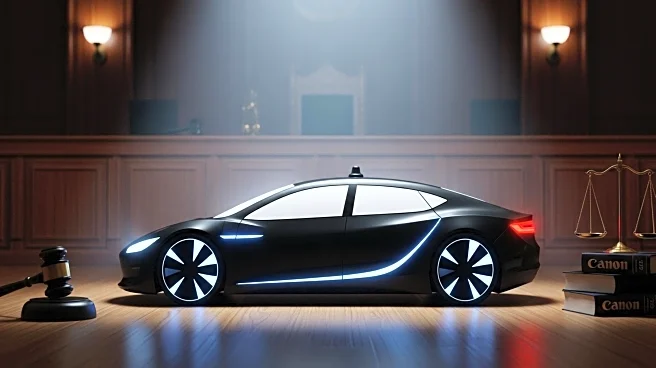What's Happening?
A Florida jury has ordered Tesla to pay approximately $243 million in a case involving a crash where its Autopilot system was found partially at fault. The incident involved a driver who glanced at a dropped phone and crashed at a T-intersection in Key Largo, resulting in one death and one injury. The verdict reflects the jury's assessment of Tesla's liability despite the Autopilot being only one-third at fault.
Why It's Important?
The verdict highlights the legal and ethical challenges surrounding autonomous vehicle technology. It underscores the public's skepticism and heightened scrutiny of AI systems, particularly when they contribute to harm. This case may influence future litigation involving AI and autonomous systems, potentially affecting the development and deployment of such technologies. The substantial penalty could impact Tesla's operations and prompt discussions on the accountability of AI systems in the automotive industry.
What's Next?
Tesla may appeal the verdict, seeking to reduce the financial penalty or challenge the jury's decision. The case could lead to increased regulatory scrutiny of autonomous vehicle technologies and calls for clearer guidelines on liability and safety standards. Other companies developing AI systems may reassess their risk management strategies in light of this verdict.
Beyond the Headlines
The case reflects broader societal tensions regarding AI and its role in everyday life. It raises questions about how technology is integrated into human activities and the ethical considerations of AI accountability. The verdict may prompt discussions on the balance between innovation and safety, influencing public policy and consumer trust in AI technologies.









